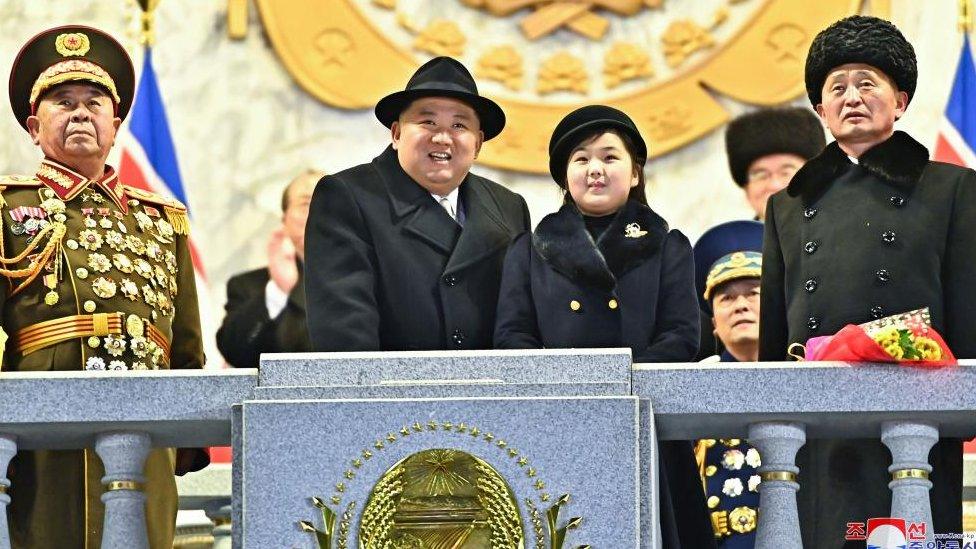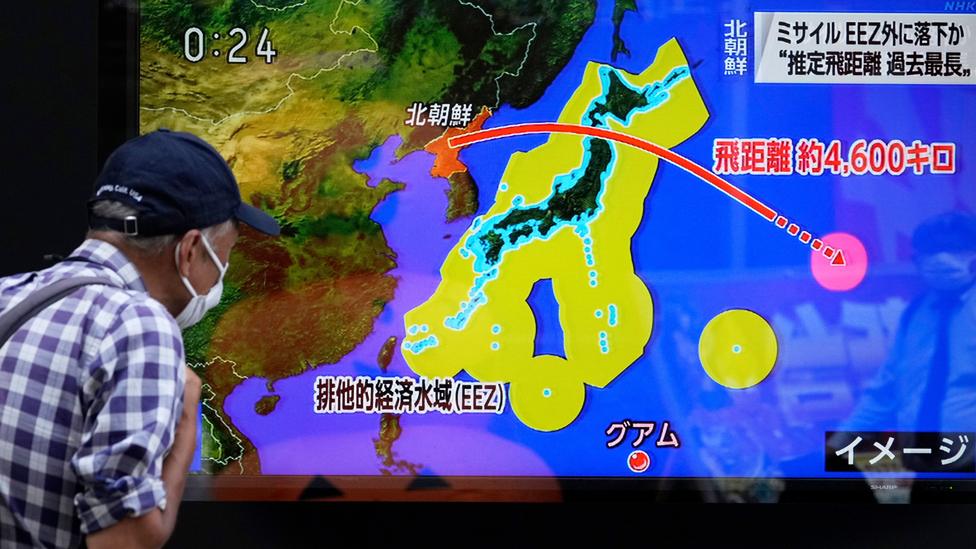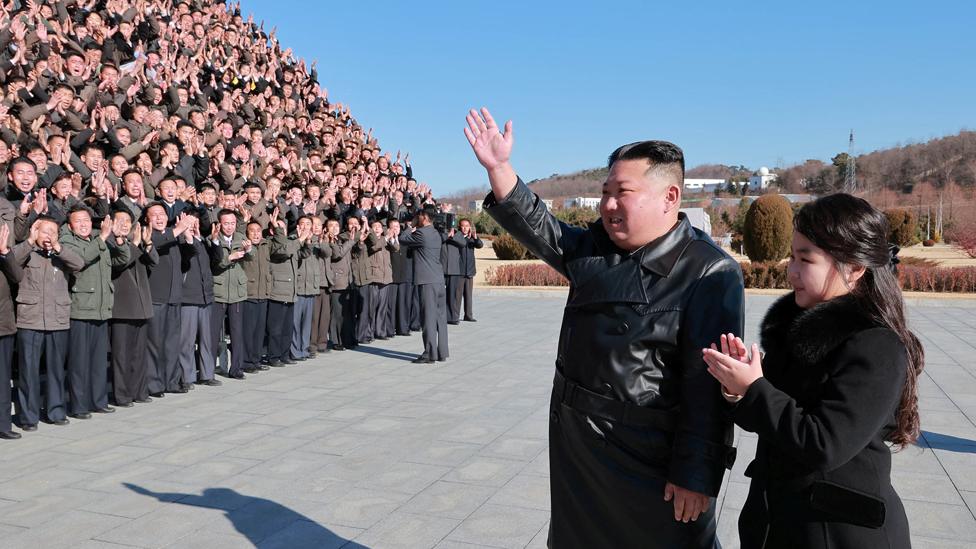N Korea fires missile after threatening retaliation
- Published
Watch: North Korea launches Hwasong-15 missile
North Korea fired an intercontinental ballistic missile (ICBM) on Saturday in a "surprise" drill to confirm the weapon's reliability, state media said.
It flew over 900km (560 miles) for 67 minutes and landed in the Sea of Japan.
Pyongyang said the test showed it was capable of countering hostile forces like the US and South Korea.
It comes ahead of joint exercises between Washington and Seoul next month, designed to help fend off North Korea's increasing nuclear threats.
Authorities in Pyongyang have threatened to unleash an "unprecedently strong" retaliation to any such drills - which it insists are being done in preparation to invade North Korea.
This was reinforced early on Sunday by Kim Yo-jong, sister of North Korean leader Kim Jong-un, who said any hostile acts would be met with a "strong and overwhelming" response. She also urged the US to end what she called "threats" against the regime.
But she added that the South Korean capital, Seoul, would not be targeted by North Korean missiles.
On Friday, North Korea showed off its massive military might in a parade that included more than a dozen ICBMs.
Saturday's missile, which is the first to be launched since new year's day, splashed down west of Hokkaido, in Japan's exclusive economic zone (EEZ) at 18:27 (09:27 GMT), Japanese Prime Minister Fumio Kishida said. An EEZ is an area of the sea that a country has jurisdiction over. Japan's is a 200-nautical mile area off its coast.
It reached an altitude of 5,700km (3,510 miles), government spokesperson Hirokazu Matsuno said in Tokyo. While that is incredibly high - the edge of space is about 100km - it is not the highest a North Korean missile has flown.
In November, an ICBM reached an altitude of 6,100km. Previously, in January 2022, North Korea released extraordinary photos of the Earth that it claimed were taken from a missile launch that reached 2,000km.
ICBMs are particularly worrying because of their long range, including mainland United States.
Japan's Defence Minister Hamada Yasukazu said Saturday's missile would have been able to do this, with a possible range of 14,000km.
"This series of actions by North Korea threatens the peace and stability of Japan and the international community, and is absolutely unforgivable," Mr Matsuno said.
North Korea's "reckless behaviour" was condemned by the G7 foreign ministers, who are attending a summit in Germany. In a statement, they said it "threatens regional and international peace and security" and the UN Security Council needed to take more significant measures against Pyongyang.
South Korea's military reported the missile was launched from the Sunan district, north of Pyongyang, where the international airport is located. It is also where North Korea has launched most of its recent ICBM tests.
North Korea's ballistic missile and nuclear weapons programmes are banned by the UN Security Council. But this has not stopped Pyongyang from continuing with its weapons development, and holding elaborate military parades to show them off.
Just over a week ago, Pyongyang showed off its largest display ever of intercontinental ballistic missiles in a midnight military parade which was attended by leader Kim Jong-un.
Related topics
- Published9 February 2023

- Published5 September 2023

- Published3 January 2023
